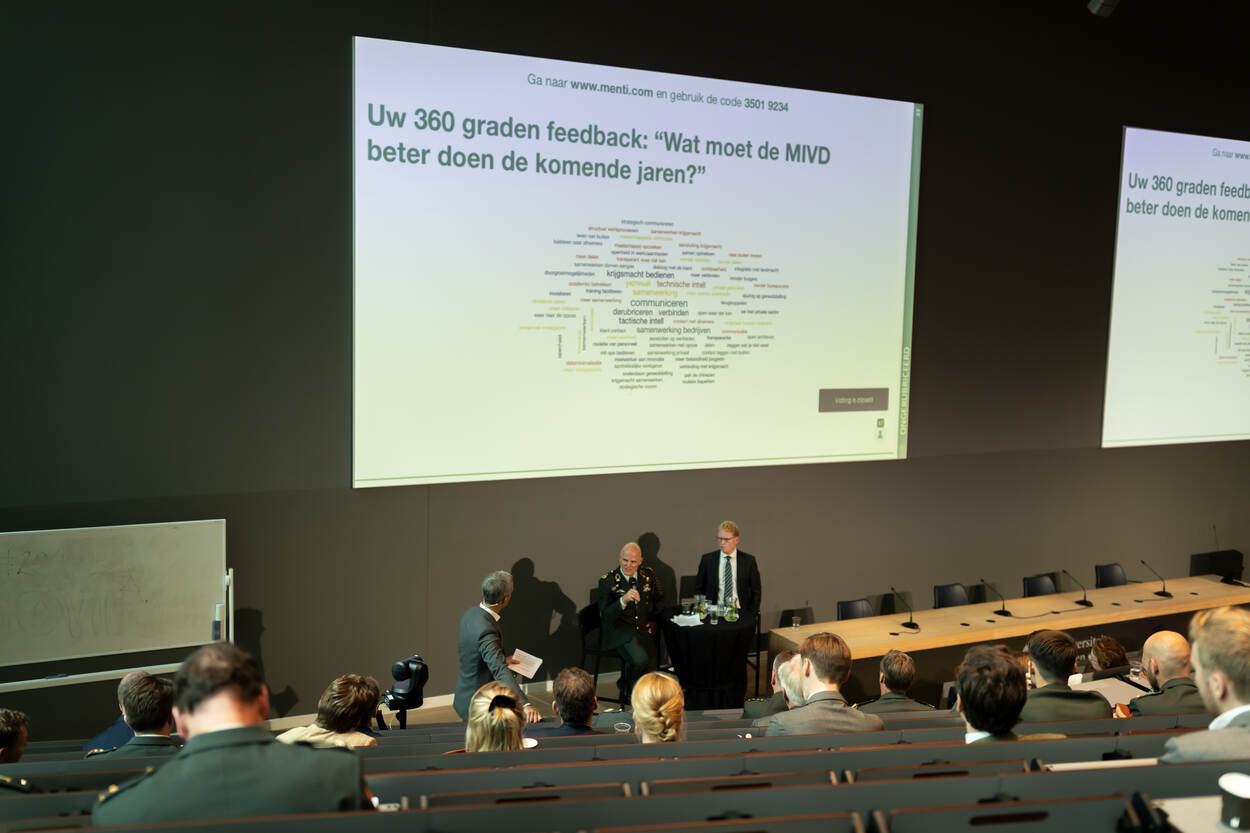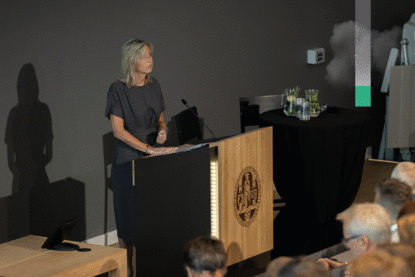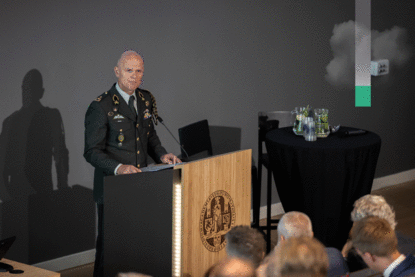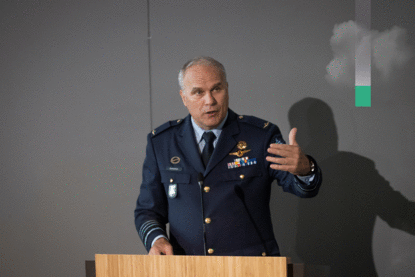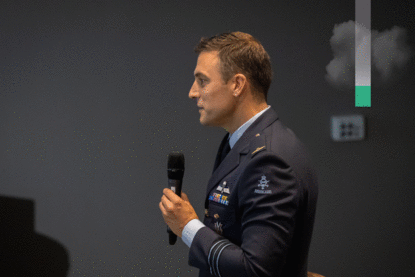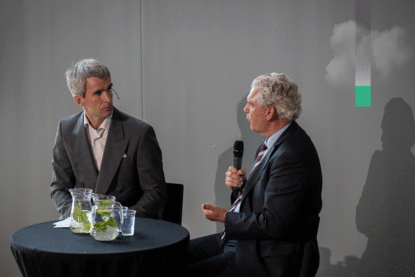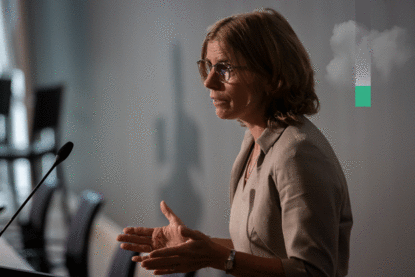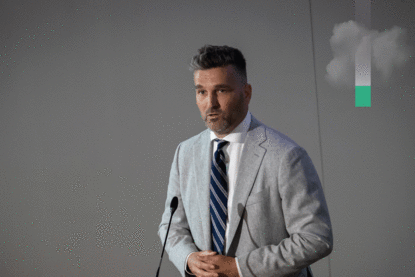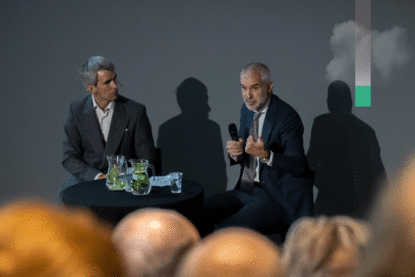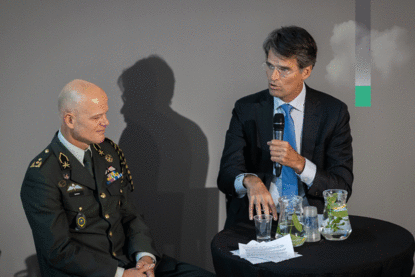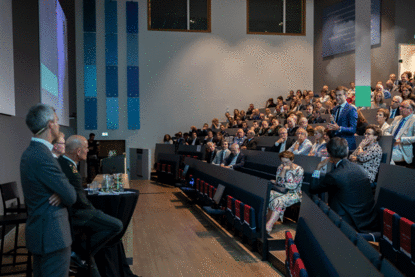The audience is asked to answer three questions using a Mentimeter. The director and deputy director of the Netherlands Defence Intelligence and Security Service (DISS) give their response.
What do you consider to be the main threats facing the security and interests of the Netherlands?
Jan Swillens: ‘This word cloud corresponds fairly closely to our Integrated Directive. It mainly depicts the wide diversity of threats that we have to face. 15 years ago 80% of our activities were focused on Afghanistan. Our current radar is increasingly tuned to pick up signals from all directions. We must ensure that when we are faced with a game-changer, such as the Russian invasion of Ukraine, we can rapidly redeploy our capabilities.’
Sebastian Reyn: ‘We don’t have the luxury to focus on one single aspect. I noticed that during this seminar the word ‘Russia’ was mentioned relatively infrequently, in contrast to the words ‘China’ and ‘technology’. In metaphorical terms, the Russian Federation represents a thunderstorm and China represents climate change. It is imperative not to lose sight of the implications of China's actions.’
Why would you like to work for the service?
Sebastian Reyn: ‘The Russian Federation represents a thunderstorm and China represents climate change. It is imperative not to lose sight of the implications of China's actions.’
Your 360º feedback: what should NLD DISS do better in the coming years?
Sebastian Reyn: ‘I think that this seminar is a useful first step towards greater and better communication. In that sense I thought Patricia’s contribution was very good. How does the JSCU work? How does bulk data work? And no, we won’t wait until our 25th anniversary before you see us again. We already share far more intelligence than previously, and we certainly need cooperation with the market and the academic community. If you continue to visit us, we promise to devote further attention to this.’
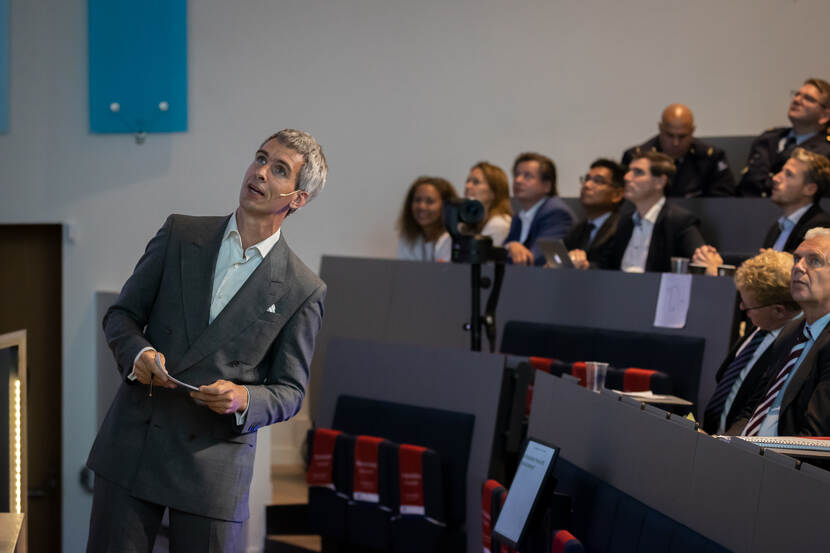
Jan Swillens: ‘I miss our core value ‘excellence’ in this word cloud. Things can always be improved. We must have the drive to continually seek ways to improve and examine the challenges we face. We know we will sometimes encounter strategic surprises, but can we then shift to a higher gear? And how do we ensure that we are in tune with all our partners when needed? Unfortunately we cannot do everything, and sometimes things fall off the plate. This is also because we have made substantial cuts to intelligence and security units. Fortunately we now have new opportunities to invest in these services.’
